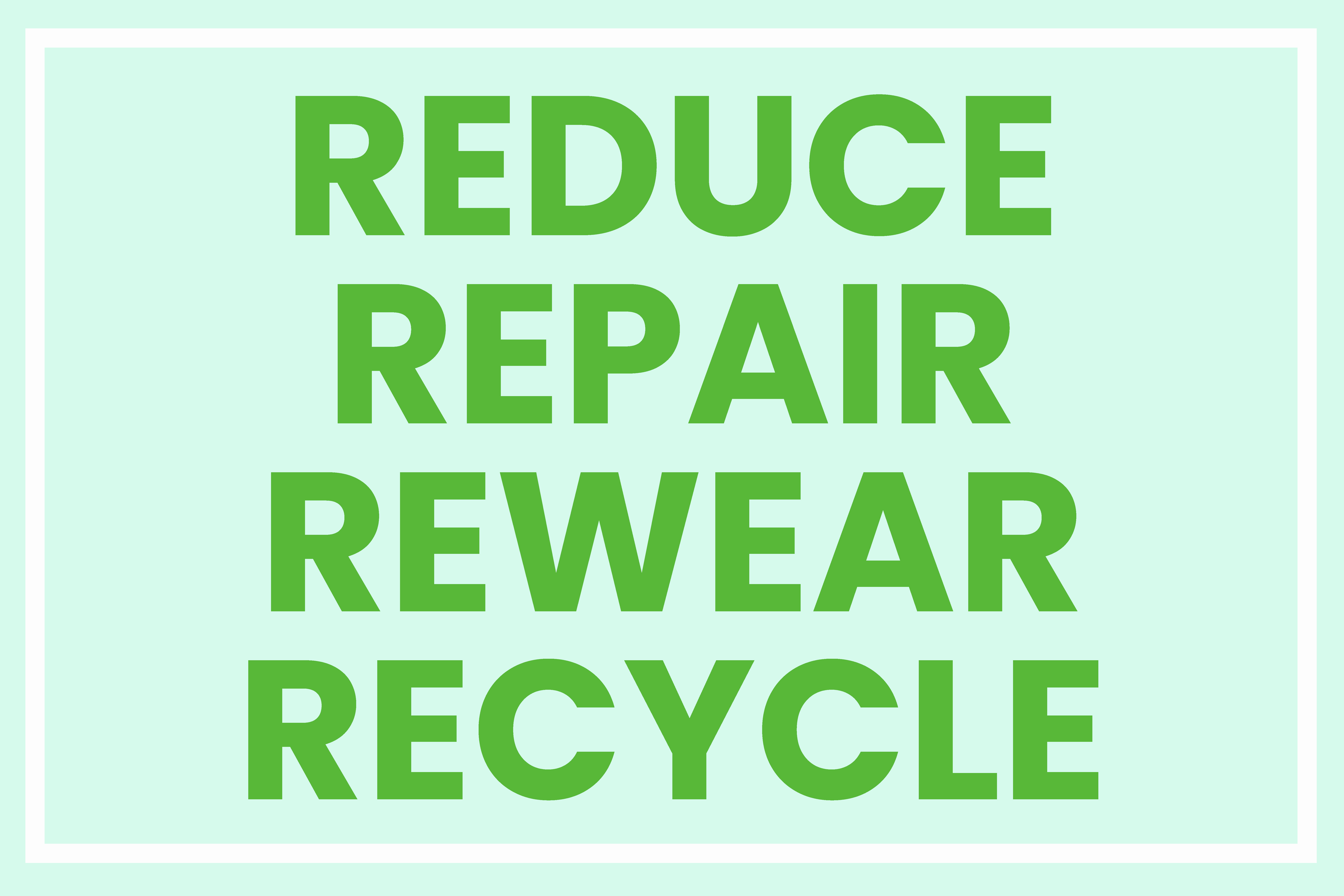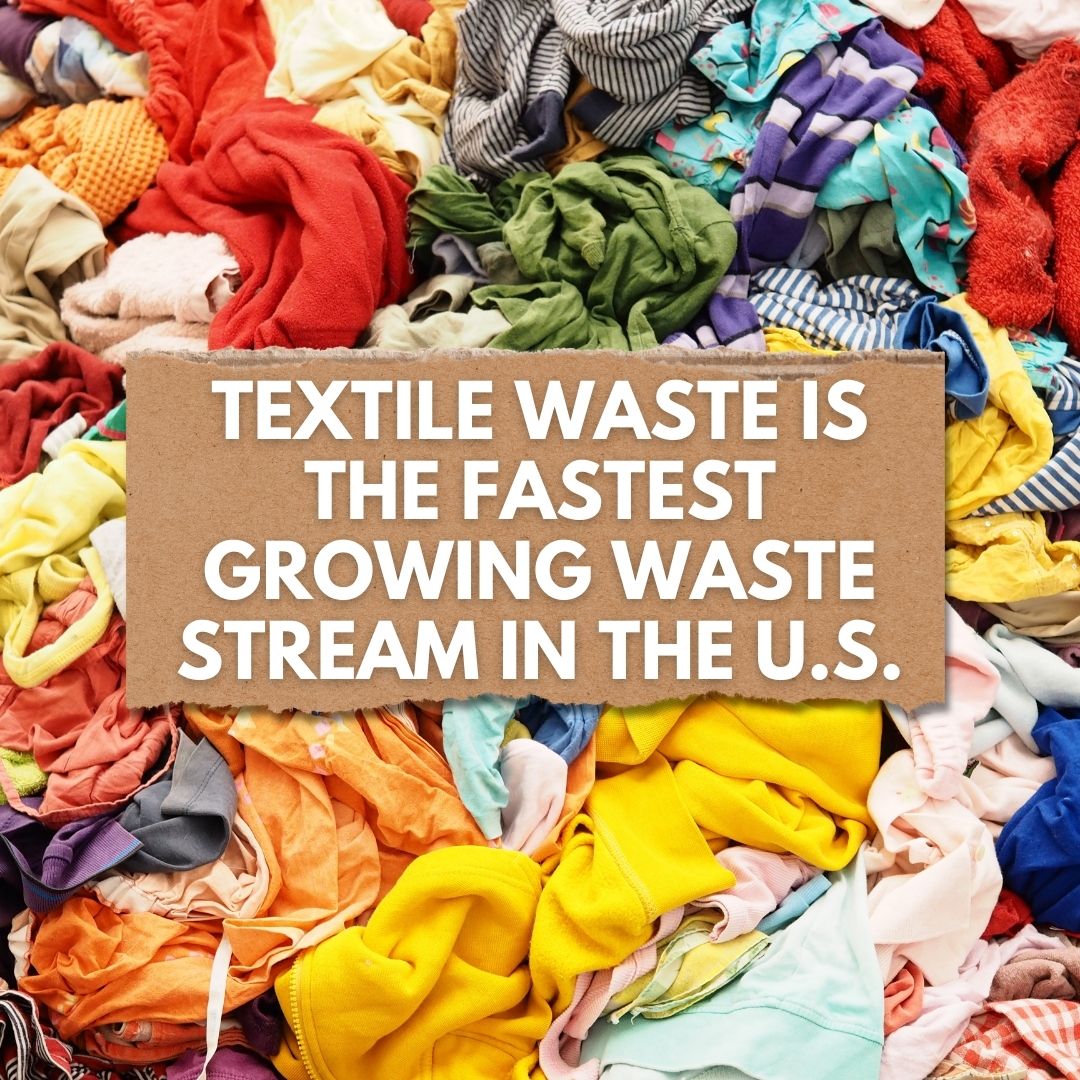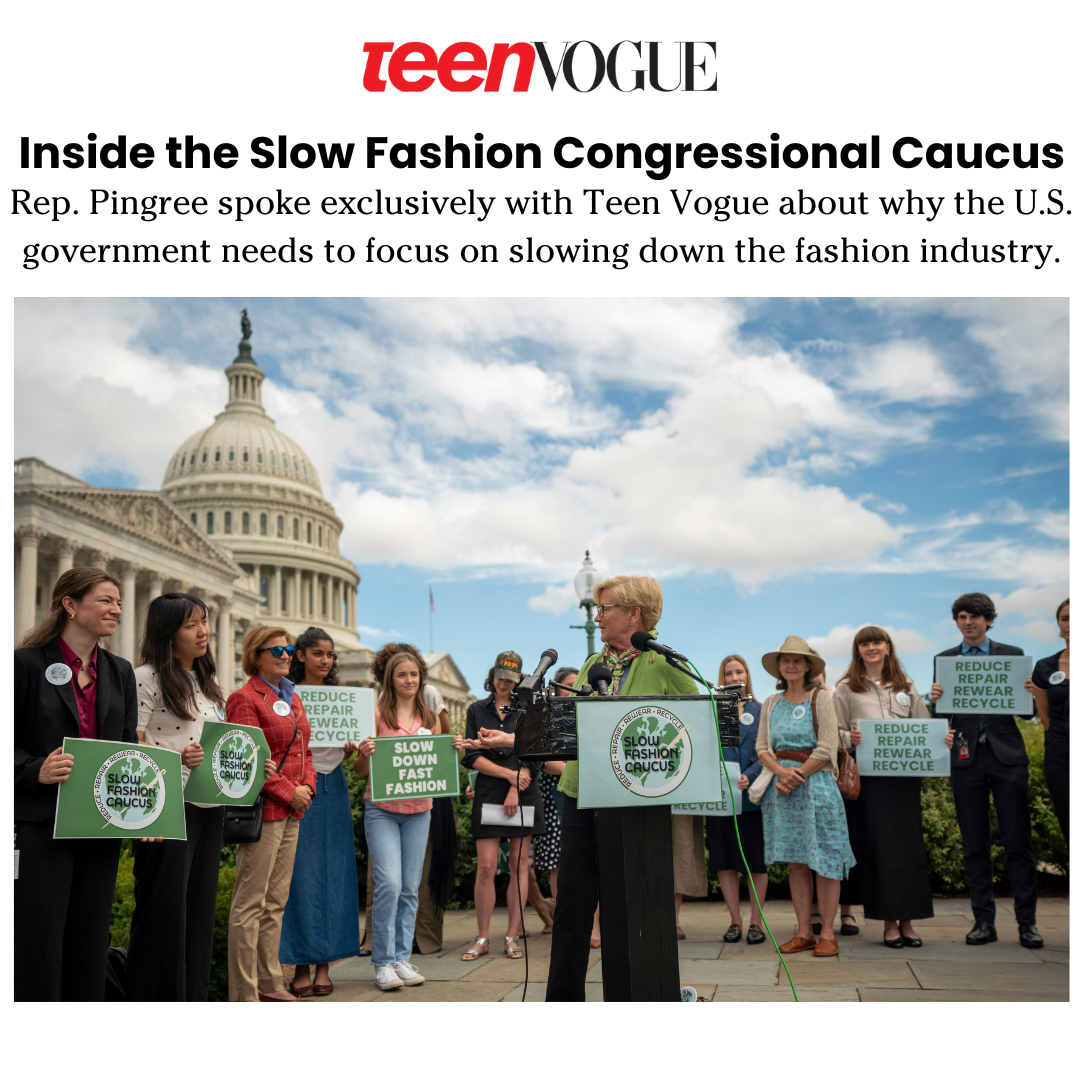Representatives Chellie Pingree (D-Maine, Chair), Marie Gluesenkamp Perez (D-Wash.), Grace Meng (D-N.Y.), Julia
Brownley
(D-Calif.), Sydney Kamlager-Dove (D-Calif.), Jerrold Nadler (D-N.Y.), Jan Schakowsky (D-Ill.), Earl Blumenauer
(D-Ore.),
Kathy Castor (D-Fla.), Jared Huffman (D-Calif.), Alexandra Ocasio-Cortez (D-N.Y.), and Jill Tokuda (D-Hawaii).
Alon Rotem, Chief Legal Officer of ThredUp: “There is a dire need for public
policy to help us accelerate the transition to a more sustainable future, just like it has for energy and
vehicles. The launch of the Slow Fashion Caucus gives us a powerful new platform to forge ahead. We look forward
to working with like-minded organizations and policymakers to advance the fashion policy agenda, change
incentive structures to benefit our shared planet and resources, and ultimately create a more sustainable
fashion future for generations to come."
Phyllis Cuttino, CEO of The Climate Reality Project: “I commend Congresswoman
Pingree for launching the Slow Fashion Caucus, which aims to raise public awareness about this issue and advance
smart policies to make it easier for consumers and industry to take steps to reduce fast fashion’s very real and
significant carbon footprint.”
Daisy Gonzalez, Campaigns Director, Garment
Worker Center: "The Garment Worker Center (GWC) applauds Congresswoman Pingree’s
effort to establish a Slow Fashion Caucus to push forward policies that move the needle towards a responsible
and ethical fashion industry. GWC organizes alongside US garment workers, primarily in California, the largest
garment production hub in the United States, to transform the garment industry, eliminate sweatshop labor, and
hold brands accountable for the social and environmental issues they create. The slow fashion movement must
include the needs of sustainable brands and American garment workers of which there are 100,000 today. It’s due
time for US policy that invests in workers, responsible business, and combats fast fashion. Fast fashion relies
on cheap manufacturing to produce trendy, inexpensive, short lived garments that end up in landfills. Cheap
manufacturing, more often than not, goes hand in hand with labor rights violations and wage theft. We look
forward to engaging with the Slow Fashion Caucus on pivotal initiatives involving ethical labor, domestic
manufacturing, sustainability, and environmental responsibility."
Emily Stochl, Remake Vice President of Advocacy & Community Engagement: "Remake commends
Congresswoman Chellie Pingree (D-Maine) for launching the Congressional Slow Fashion Caucus and for outlining
these stated principles, particularly the aim of bringing textile production back to the U.S. We must create a
'race to the top' on responsible business, and level the playing field for domestic manufacturers. There is an
estimated $5 billion global market for responsibly-produced apparel developing, and – with proper investment –
an opportunity to create technology-oriented, high-value domestic jobs. The ability to access these economic
returns will require policy that creates an environment where responsible business can compete and thrive, and
labor rights provisions that reflect the U.S. government’s core values and labor standards are upheld."
Joe Whitten, CEO and Co-founder of Apparel Impact: "At Apparel Impact, we believe
that sustainability is the key to a better future, and we're proud to stand with Congresswoman Pingree and the
Slow Fashion Caucus. We believe this initiative will go a long way toward reducing textile waste and promoting
sustainable practices in the fashion industry."
Leslie Davidson, Co-Founder, Pennsylvania Fibershed: "As advocates for
sustainability, circularity and ethical practices within the fashion industry, Pennsylvania Fibershed
wholeheartedly endorses the establishment of the Slow Fashion Caucus. In a fast-fashion dominated world, it's
essential to support initiatives that prioritize environmental responsibility, fair labor practices, local job
creation, circular economy principles, domestic manufacturing and the preservation of cultural heritage in
garment production. Establishing a Slow Fashion Caucus would provide a vital platform for policymakers, industry
leaders, and activists to collaborate on implementing policies and practices that promote a more sustainable and
equitable fashion ecosystem. By fostering dialogue, raising awareness, and driving meaningful change, the caucus
can play a pivotal role in shaping the future of fashion towards a more ethical, mindful, and resilient industry
both here in the U.S. and abroad."
American Apparel & Footwear Association: “AAFA welcomes Representative
Pingree’s efforts to elevate conversations about textile, apparel, and footwear circularity policy in Congress.
We are a global industry with global impact, and sustainability solutions are going to require global effort and
coordination too. It is imperative that the United States approach this work through a Federal lens, drawing
upon the efforts already underway— by stakeholders across the industry and policy community — to ensure a
consolidated, coordinated, and practical federal response to support and accelerate our shared work.”
Heather Podoll, Fibershed Partnerships and Advocacy Coordinator: "The Slow
Fashion Caucus launched by Rep. Chellie Pingree is poised to address critical issues facing our textile and
fashion industries, while offering proven solutions with abundant environmental, economic and social benefits.
We are excited for this Caucus to help coordinate action across federal agencies and programs supporting a
fashion and textile system that reduces pollution and waste, protects communities and workers, uplifts
climate-smart agriculture and domestic natural fiber producers, and builds economic opportunities through
domestic textile processing and manufacturing."
Tripp Harrison, President and CEO, Goodwill Northern New England: "Goodwill
Northern New England is incredibly grateful to Congresswoman Pingree for launching the Congressional Slow
Fashion Caucus to create policies to reduce, repair, reuse, and recycle textiles. Fast fashion takes an
incredible toll on our planet. Reuse must be a major part of the solution. Keeping a circular economy is an
up-spiral of good. When people donate to their local Goodwill those items stay local and out of landfills; and
the revenue created goes directly back into Goodwill's workforce programs which upskill Mainers into in-demand
jobs at local businesses. When we donate and shop secondhand we help the Earth and our neighbors. Rep. Pingree's
work to raise awareness and affect policy on these issues is essential."
Karla Magruder, Accelerating Circularity Founder and President: "Accelerating
Circularity is a nonprofit, action-oriented, ‘do-tank’, that brings stakeholders from across the supply chain
together to close the loop on textile-to-textile recycling. Through commercial scale production trials, we have
tested numerous circular textile models and discovered viable pathways to building scalable circular systems.
The Slow Fashion Caucus represents an important step on the path to circularity for the American textile
industry, and inspires us to collaborate further to reach our goals. Materials outlast products; by recycling
used textiles into new raw materials, we can lower the textile industry’s GHG emissions, reduce the use of
virgin materials, and create positive social impacts."
Leslie Davidson, Co-Founder, Pennsylvania Fibershed: "As advocates for
sustainability, circularity and ethical practices within the fashion industry, Pennsylvania Fibershed
wholeheartedly endorses the establishment of the Slow Fashion Caucus. In a fast-fashion dominated world, it's
essential to support initiatives that prioritize environmental responsibility, fair labor practices, local job
creation, circular economy principles, domestic manufacturing and the preservation of cultural heritage in
garment production. Establishing a Slow Fashion Caucus would provide a vital platform for policymakers, industry
leaders, and activists to collaborate on implementing policies and practices that promote a more sustainable and
equitable fashion ecosystem. By fostering dialogue, raising awareness, and driving meaningful change, the caucus
can play a pivotal role in shaping the future of fashion towards a more ethical, mindful, and resilient industry
both here in the US and abroad."
Sarah Kelley, Managing Director, Fibers
Fund: "Congresswoman Pingree's launch of the Slow Fashion Caucus is a critical
contribution to a more sustainable future for the fiber and textile industry. At the Fibers Fund, we are focused
on providing catalytic financing to support small U.S. natural fiber and textile producers and processors, with
a specific focus on equity and justice. These farmers, ranchers, and entrepreneurs are working hard to bring
textile production back to the U.S. and provide better alternatives to the current fast fashion industry, but
they need stronger awareness and support from a range of government agencies. The Slow Fashion Caucus will play
a pivotal role in coordinating efforts to address the current global industry's outsized carbon emissions,
wasteful production practices, and disproportionate impact on communities of color. Together with our founding
partners Sustainable Agriculture and Food Systems Funders and Fibershed, our Advisory Council, and the
entrepreneurs we serve, we look forward to supporting Congresswoman Pingree’s efforts and engaging in
collaborative action towards an equitable and regenerative textile industry."
Bert Barnes, Director of Sustainability, The RealReal: "As fast fashion amplifies
the climate impacts of the fashion industry, The RealReal recognizes the critical importance of circularity in
combating this growing crisis. Since 2011, The RealReal has been a solution to fast fashion, fostering a more
sustainable future for both the planet and the fashion industry. We believe the launch of the Slow Fashion
Caucus is a pivotal moment for apparel and textile circularity in the US. The RealReal is excited to support the
Caucus, its members, and our industry peers in the pursuit of a better future for fashion."
Kelly Dempsey, Sustainable Fashion Designer and Project Runway Season 14
Runner-Up: "As a sustainable fashion designer and advocate, I wholeheartedly support
Congresswoman Pingree's launch of the Slow Fashion Caucus. This initiative is crucial for promoting sustainable
practices in the fashion industry and reducing textile waste. By encouraging upcycling and conscious consumer
choices, we can significantly mitigate the environmental impacts of fast fashion. The Caucus will play a vital
role in shaping policies that support responsible business practices and environmental stewardship."
Ngozi Okaro, Executive Director, Custom Collaborative: "Custom Collaborative
supports the Congressional Slow Fashion Caucus's efforts to tackle the immense waste in the fashion industry. As
a non-profit dedicated to teaching the art and business of fashion through the lens of sustainability, we see
firsthand how current practices disproportionately harm marginalized communities and the planet. Effective
policy is critical to create and advance meaningful change. Businesses must be incentivized to create durable
and circular lifecycles for their garments. By championing legislation that promotes these incentives, we can
pave the way for a more equitable and sustainable future in the fashion industry, ensuring that all communities
benefit from this progress."
Eric Henry, CEO, TS Designs and Founder, Know Your Clothing: "We wholeheartedly support the Slow Fashion Caucus. TS Designs has been on a mission to create an equitable and transparent apparel supply chain since the creation of our natural fiber Cotton of the Carolinas t-shirt line in 2008, where we supply tracking for each step of the supply chain with a QR code in the neck label of each shirt. From cotton farmers struggling with record low prices and the impacts of climate change, to companies chasing the bottom line for production, and customers making purchasing decisions based solely on the cheapest price or falling victim to greenwashing tactics, the need for a shift in the fashion industry is here. To help bring more awareness to the issue we recently developed Know Your Clothing, an initiative whose mission is to cultivate resilient apparel communities through circularity, transparency, and equity. Thank you Congresswoman Pingree.”
TeenVOGUE:
Inside
the Slow Fashion Congressional Caucus
The Washington Post:
Can Congress break
our addiction to fast fashion?
Bloomberg:
Fast
Fashion’s Climate Impact Spurs New Democratic Caucus
E&E:
Dems launch caucus
on fashion’s climate, waste impacts
Portland Press Herald:
Pingree,
other lawmakers draw attention to fast fashion’s toll on the environment
MainePublic:
U.S.
Rep. Chellie Pingree warns about the impacts of fast fashion industry
NEWS CENTER Maine:
Rep.
Pingree announces effort to curb pollution by slowing down 'fast fashion'
Ecotextile News: Slow
Fashion Caucus launched in US Congress
WGME: Congresswoman
launches Slow Fashion Caucus to combat fast fashion's environmental toll
Sourcing Journal: Members
of Congress Launch Slow Fashion Caucus, Highlighting Circularity




